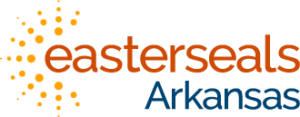
Easterseals Arkansas: Ways to Give
Every gift plants a seed of hope and creates boundless opportunities.
Your contributions have the transformative power to bring hope, help, and answers to individuals living with disabilities and to their families. With Easterseals Arkansas, your gift translates to vital support systems that illuminate paths toward self-reliance.
Join us in fostering an environment rich with opportunities, where your donations shape a future filled with hope, advancements, and inclusivity.
A Variety of Ways to Enrich Lives
We embrace the diversity in the ways you can extend your support. From one-time donations to creating a personalized fundraising page, every gesture is a step towards achieving a compassionate community for all.
Here are the avenues through which you can make a tangible difference:
Donate Now
Offer your support through a secure online gift, a straightforward way to nurture dreams and facilitate growth.
Join the Presidents’ Council
Step into a sphere of monumental impact by donating $1,000 or more, assisting us in pioneering crucial initiatives for individuals with disabilities.
Make a Tribute or Memorial Gift
Honor the memory or celebrate the life of a loved one through a dedicated memorial gift. We ensure your gesture is commemorated with a mailed acknowledgment card.
Monthly Giving
Establish a lasting impact through recurring gifts and create a steady stream of support that continuously empowers those in need.
Set Up a Matching Gift
Amplify your donation through employer-matching gift programs. By doing so, you’re potentially doubling the impact of your generosity.
Workplace and Employee Giving
Foster a culture of giving at your workplace and create a collective force for good through systematic payroll deductions designated for Easterseals.
Gift Planning
Align your financial and philanthropic goals, exploring avenues of legacy giving that cater to your financial planning while uplifting lives.
Transfer Securities to Easterseals
Delve into the additional tax advantages of donating securities, a thoughtful way to maximize your contribution. Contact us to explore this avenue further.

Your gifts resonate with hope and potential.
It enables a future where every individual can embrace the full spectrum of life’s beautiful moments with independence and joy. Thank you for being a vital part of this vision.
Get in Touch
To learn more or to initiate your donation, simply reach out to us:
Easterseals Arkansas
Development Department
3920 Woodland Heights Rd.,
Little Rock, AR 72212
501-227-3700
